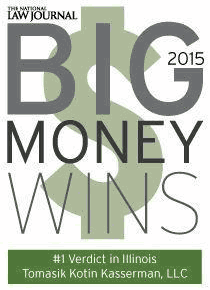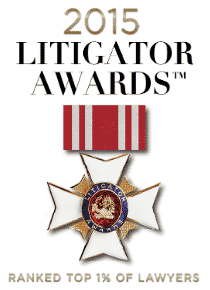The Specter of Drone Litigation Takes off
By Timothy Tomasik & Edet Nsemo1
A faint buzzing fades in and out of earshot, too quiet for a plane but too loud for an insect. Searching the skies subtle movement catches the eye—a black dot in a sea of blue—there is a drone overhead. In the far-flung battlefields where armed forces fight to keep America safe, a drone overhead can settle the nerves. But closer to home, lawmakers, lawyers and hobbyists alike find the rule of law in this burgeoning field of drone litigation very much unsettled.
The fact is that drones are no longer tools of battle exclusive to wars waged abroad. Instead of delivering ordinance they may be delivering goods. Rather than protecting our armed forces, they bring joy to the hobbyist. The list of potential uses for drones is expanding faster than the law can keep up, and whether it be commercial or private use, drones present unique concerns for safety and privacy that law is scrambling to address.
Imagine a scenario where drone operated by a retailer prematurely releases its payload somebody’s home or their child. Who pays? Is the drone or the operator insured? Do they have to be? Equally as troubling, suppose a drone with video recording capabilities circles a private swimming pool, surreptitiously studying the signs of sun on the skin. Is it trespassing? Is it lawful to shoot a drone out of the sky in defense of property—or privacy? These questions do not have clear answers, but they deserve serious consideration. As drone use expands, so too will drone-related litigation, and the rules of law that govern their operation.
For a time, it seemed drone-law provided some clarity to the drone-user community. Clarity soon turned to obscurity. In August 2016, the Federal Aviation Administration exercised their exclusive regulatory authority over national airspace. 14 C.F.R. § 107. The guidelines were broad commands over recreational drones weighing between 0.55 and 55 pounds and did not specifically address matters of privacy or personal injury. Id. The FAA then released Advisory Circular 107-2 which provided guidance to state and local governments on making rules beyond FAA requirements. Less than a year after the FAA Rules for drone operation took flight they were grounded by the U.S. Court of Appeals for the District of Columbia.
In May 2017, the court in Taylor v. Huerta, 856 F.3d 1089 (D.C. Cir. 2017) held that the FAA lacked the statutory authority to issue rules mandating registration of recreational drones. Ultimately, the FAA Modernization and Reform Act of 2012 §306(c) 49 U.S.C. § 40101, prohibits the FAA from making any rule or regulation regarding a model aircraft. A model aircraft is defined as an unmanned aircraft that is capable of sustained flight and is flown for recreation or for hobby within the line of sight of the operator. Id. In other words, a model aircraft is a drone —and unless Congress changes their minds, FAA regulations are rules on recreational drones, and both are prohibited by statute. Taylor, 856 F.3d at 1092.
Federal regulations, however, are not the same as local regulations. Other rules or combination of rules exist. State and local governments across the country continue to modify safety guidelines as more drones take flight. It is important to know and understand that recreational drone use is subject to state and municipal regulations in addition to state and local tort and/or privacy laws. Since this rapidly growing industry of recreational flight is fluid and evolving, hobbyists should regularly consult state and municipal authorities. By the same measure, drone disputes will increase on court dockets in the months and years to come. It is inescapable that serious injuries will occur due to the negligent operation of drones. Victims will have a viable action under Illinois law to be compensated for their injuries.
1Edet served in Afghanistan with the United States Marine Corps.

 312-605-8800
312-605-8800




 312-605-8808
312-605-8808




